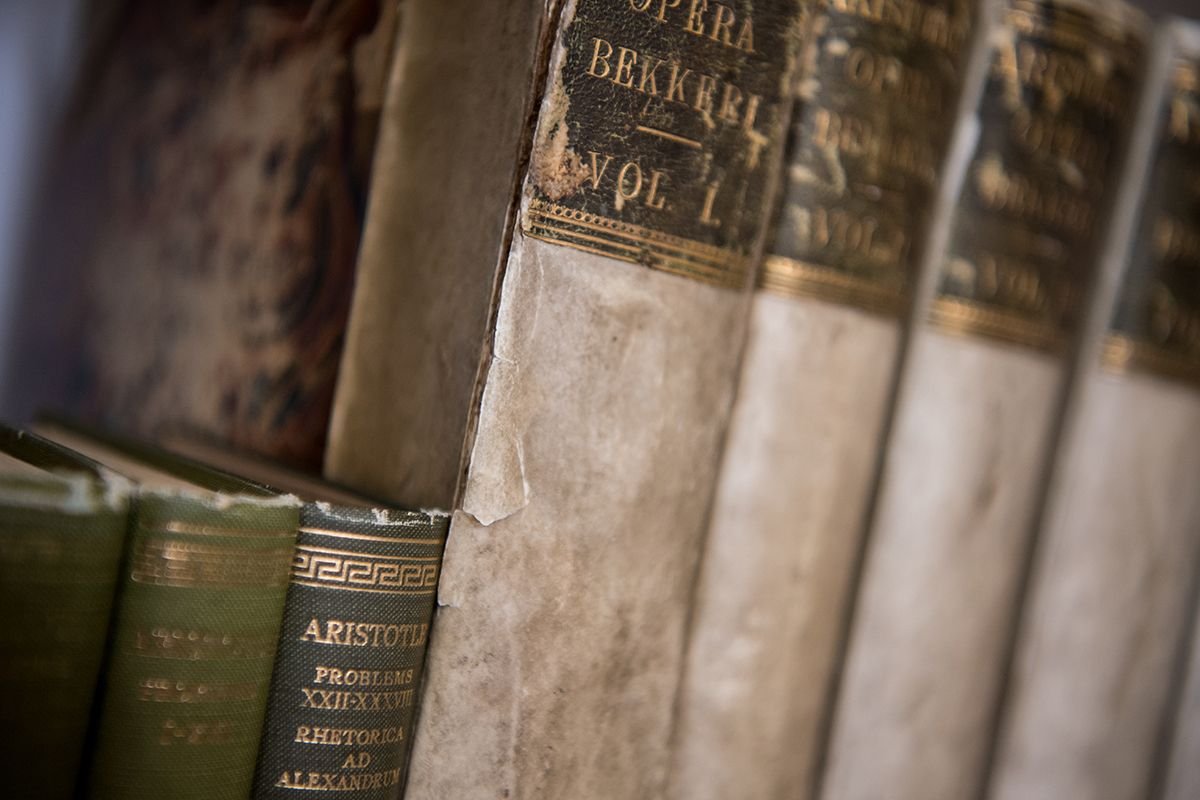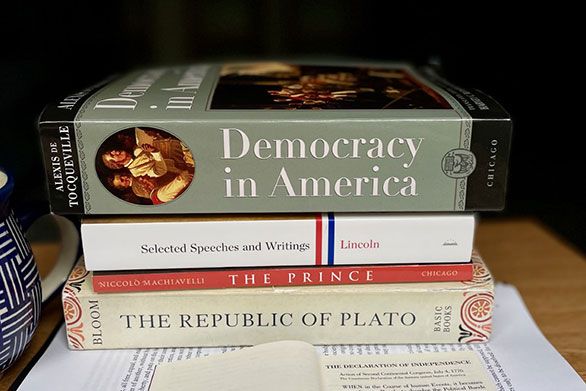Master of Arts in Liberal Arts
We are currently accepting applications for the spring, summer, and fall 2026 semesters.
Students earning the Master of Arts in Liberal Arts (MALA) degree ask and respond to fundamental questions about themselves and the world by reading and discussing great books. Whether you are right out of college, concluding a successful career, or somewhere in between, this program welcomes sustained reflection and discussion with a community of enthusiastic learners. The program is offered on both the Annapolis and Santa Fe campuses, as well as online through the low-residency program, and can be started during the fall, spring, or summer semester.

Literature Seminar An Immersion in Classical Greek Literature
Students immerse themselves in the foundational works of classical Greek literature beginning with a study of the whole of Homer’s Iliad and Odyssey, followed by Aeschylus’ Oresteia, Sophocles’ Antigone, Oedipus Rex, and Oedipus at Colonus, and works by Euripides and Aristophanes. Students consider the thoughts and actions of some of Greek literature’s greatest characters and confront fundamental questions of human existence that still resonate today.

Politics and Society Seminar Human Nature and the Nature of Government
By studying the writings of Plato, Aristotle, Machiavelli, Locke, Rousseau, and Marx, among other texts, we follow a conversation spanning thousands of years about the nature of democracy, government, and our society. Explore contrasting notions of the relationship between the individual and state, the motivations of human beings, and the “best” form of government.

Philosophy and Theology Seminar The Bible, Thomas Aquinas, & Kierkegaard
Philosophy and theology both confront the most fundamental questions about the nature of being, the structure of the universe, and how we as humans can fit within it. In this seminar, you will likely find that there is no bright line between faith and reason in these deepest of works: the Bible, Augustine's Confessions, Aquinas’ Summa Theologica and Kierkegaard’s Philosophical Fragments. All deal with the question of God’s existence, but they demand inquiry and thought.

History Seminar Historic Implications of the Individual and Governments
In this class, a variety of great classical historians are read, including Herodotus, Thucydides, Plutarch, and Tacitus. Through the eyes of these authors, students witness the rise and fall of the empires of Athens and Rome, confronting questions such as: What is the connection between democracy and empire? What precipitates change from one form of government to another? Students also consider the role of the individual in history, particularly through the lives of remarkable leaders of antiquity including Themistocles, Alcibiades, Caesar, Augustus, and others.

Mathematics and Natural Science Seminar Challenging the Ideas of Nature and Science
This class considers a series of texts which set forth different understandings of the enterprise of science, including what its goals, methods, and subject matter might be. When we speak of “natural science” what do we mean by “nature” and “science”? Do we wish to contemplate nature or to master it? Can the human soul be an object of natural science? These and other questions are raised by the texts of Lucretius, Plato, Aristotle, Bacon, Harvey, Descartes, Newton, Leibniz, Darwin, and Freud or Jung.




